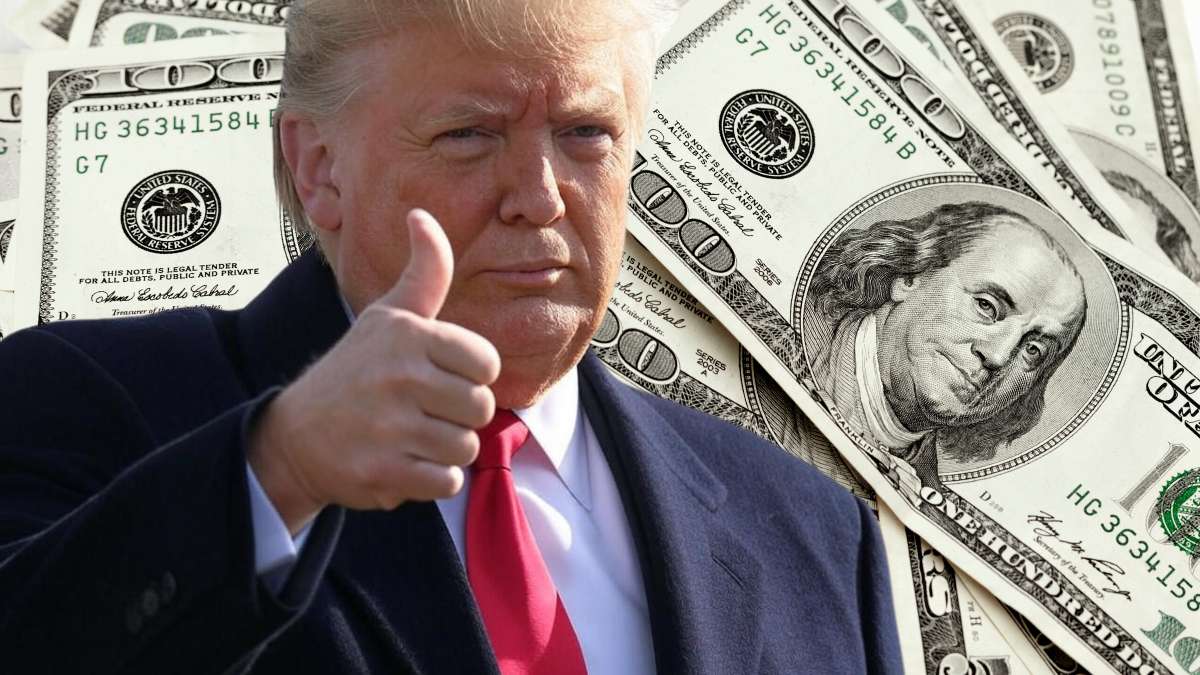The initiative to distribute $5,000 to net contributing households, known as the “DOGE Dividend“, remains in the discussion stage without confirmed legislative progress. The project, promoted by the Department of Government Efficiency (DOGE) under the leadership of Elon Musk and supported by Donald Trump, promises to redistribute 20% of identified federal savings. However, recent tax reports question its viability.
James Fishback, CEO of Azoria, proposed an idea: He calculated that if the federal government saved $2 trillion in 18 months, $400 billion of those savings could be used to send $5,000 checks to 79 million households. Regarding this idea, both Trump and Musk have expressed interest publicly, but without making formal commitments.
Elon Musk commented on X that he would review it with the president, according to various media outlets.
Is there progress on DOGE stimulus checks?
As of this weekend, no bill has been presented to Congress, an essential step for its approval. On April 8, various sources inside Congress pointed out the absence of significant progress, while Fishback insists on dialogue with legislators. Reports from the Congressional Budget Office (CBO) on the rising federal deficit add skepticism and a veil of doubt to the discussion.
The financial viability of the DOGE Dividend faces obstacles. CBO data reveals a 5% increase in the deficit in February 2025, reducing the scope to identify savings. Although Fishback maintains his optimism on social networks, political analysts consider its implementation unlikely before 2026, given the budgetary complexity.
The eligibility controversy: Who would qualify for these stimulus checks?
The net taxpayer criterion—households that pay more in taxes than they receive in benefits—would exclude millions of Americans, and has raised questions and debates about the exclusion of the idea of the program. According to the Pew Research Center, 35% of households with incomes under $40,000 would not qualify. This has generated criticism of inequity, although defenders argue that it prioritizes those who “finance the system.”
Other rules, such as the exclusion of undocumented immigrants and household — not individual — eligibility for Social Security beneficiaries, add layers of complexity. House Speaker Mike Johnson suggests the savings should go toward deficit reduction, not direct payments, sources said.
The latest updates, from April 8 to 10, reiterate stalemate in the negotiations. Publications on social networks about legislative advances lack corroboration, which experts attribute to misinformation or pre-election speculation.
Are these stimulus checks like those of the Covid-era?
Let’s see, the purpose of these payments is to inject money into the economies of states and cities, to stimulate them, and that is why it has the name it has, but the way in which the different programs are financed is different.
Unlike the COVID-19 stimuli—debt-financed and broad in scope—the DOGE Dividend is proposed as a refund based on spending cuts. Fishback insists that this would avoid inflationary pressures, but economists cited by Forbes warn that injecting $400 billion could increase demand and affect prices.




